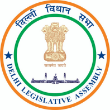Rule 60 of the Delhi Assembly Rules provide that a motion for an adjournment of the business of the House for the purpose of discussing a definite matter of urgent public importance may be moved with the consent of the Speaker.
The primary objective of an adjournment motion is to draw the attention of the House to a recent matter of urgent public importance having serious consequences and in regard to which a motion or a resolution with proper notice will not be possible. The matter proposed to be raised should be so grave that the House is required to pay its attention immediately by interrupting the normal business of the House. It is thus an extraordinary procedure which if admitted leads to setting aside the normal business of the House. An adjournment motion involves an element of censure against the Government. In the event of an adjournment motion being adopted, the House automatically stands adjourned.
Restrictions on right to move Motion
Rule 61 lays down the following restrictions:
- not more than one motion shall be made at the same sitting;
- not more than one matter shall be discussed on the same motion;
- the motion shall be restricted to a specific matter of recent occurrence;
- the motion shall not raise a question of privilege;
- the motion shall not revive discussion on a matter which has been discussed in the same session.
- the motion shall not anticipate a matter which has been previously fixed for consideration. But, the Speaker in disallowing the matter on this ground, shall take into consideration that the discussion of the matter anticipated is likely to be taken up in the House within a reasonable time, and
- the motion shall not deal with a matter on which resolution could not be moved;
- the motion shall not deal with any matter which is under adjudication by a court of law having Jurisdiction in any part of India:
- the motion shall relate to a matter which is primarily the concern of the Government.
Procedure
When the Speaker is satisfied that the matter proposed to be discussed is in order under the rules, he may give his consent to the moving of the motion and he shall call the member concerned to seek the leave of the House to move the adjournment motion. If objection to leave being granted is taken, then the Speaker shall request those members who are in favour of leave being granted to rise in their places. If not less than 1/6th of the total number of members of the House for the time being rise accordingly, the Speaker shall inform that leave is granted. If on the other hand lesser members rise the Speaker shall inform that leave is not granted.
Time for discussion
If leave of the House is granted the motion shall be taken up an hour before the time fixed for the usual termination of the business of the day or at an earlier hour if the Speaker so directs. The discussion commences with the motion moved by the mover that, “the House do now adjourn”. At this stage the text of the notice is not read out. After the mover has spoken on the motion, other members speak. Thereafter the Minister intervenes and at the end the mover has the right to reply.
When the Motion is being discussed that is, from the hour the discussion on an adjournment motion has commenced to the time the motion is disposed of, the Speaker ha no power to adjourn the House for the day because during that time the power vests in the House to take a decision on its adjournment. Once the discussion commences, it has to be concluded and decision arrived at without interrupting the debate. However, there is no bar to taking up formal items like laying of papers or having a tea break during the discussion. The Speaker cannot also postpone the voting to the next sitting even if a request is made to him to this effect. The motion has to be disposed of before the House is adjourned.
In the event of the adjournment motion being adopted, the House automatically stands adjourned. If the motion is negated, the business, which had been interrupted, is resumed or the next item on the Agenda is taken up for a short while and then the Speaker adjourns the House for the day. When the motion is withdrawn by leave of the House, the House may be adjourned without resuming further business, if it is time for the House to have adjourned in the normal course.



